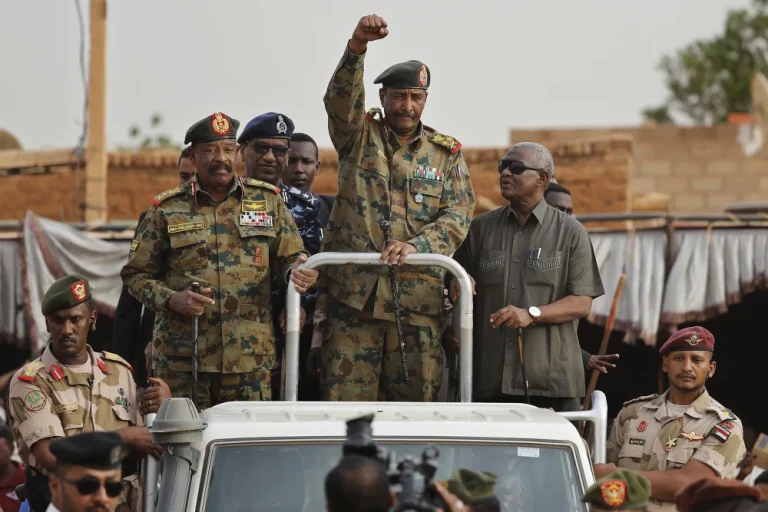NAIROBI/WASHINGTON — On Thursday, the United States imposed sanctions on Sudan’s leader and army chief, Abdel Fattah al-Burhan, accusing him of opting for war instead of engaging in negotiations to resolve the conflict that has claimed tens of thousands of lives and displaced millions.
In a statement, the U.S. Treasury Department said that under Burhan’s command, the Sudanese army has employed tactics such as indiscriminate bombing of civilian infrastructure, assaults on schools, markets, and hospitals, as well as extrajudicial killings.
Washington unveiled the measures, initially reported by Reuters, just a week after imposing sanctions on Mohamed Hamdan Dagalo, the commander of the paramilitary Rapid Support Forces and a rival to Burhan in the two-year-old civil war.
Two sources familiar with the decision told Reuters that one goal of Thursday’s sanctions was to demonstrate that Washington was not taking sides in the conflict.
Speaking earlier on Thursday, Burhan remained defiant regarding the possibility of being targeted.
“I hear there’s going to be sanctions on the army leadership. We welcome any sanctions for serving this country,” he said in comments broadcast on Al Jazeera television.
Washington also imposed sanctions related to the supply of weapons to the army, targeting a Sudanese-Ukrainian national and a Hong Kong-based company.
Thursday’s measures freeze any U.S. assets belonging to those individuals and entities and generally prohibit Americans from engaging with them. The Treasury Department stated it had issued authorizations for certain transactions, including those involving the warring generals, to avoid hindering humanitarian aid.
The Sudanese army and the RSF jointly led a coup in 2021, ousting Sudan’s civilian leadership, but their alliance fractured less than two years later over plans to integrate their forces.
The conflict, which erupted in April 2023, has driven half of the population into hunger.
Dagalo, also known as Hemedti, was sanctioned after the U.S. determined that his forces had committed genocide and carried out attacks on civilians. The RSF has been responsible for violent looting campaigns in the areas it controls.
In response, Sudan’s foreign ministry issued a statement calling the latest U.S. actions “nothing but confusion and a weak sense of justice,” accusing Washington of defending the RSF’s genocide.
Both the United States and Saudi Arabia have made repeated efforts to bring both sides to negotiations, but the army has largely rejected these attempts, including talks in Geneva in August that aimed, in part, to ease humanitarian access.
Instead, the army has escalated its military efforts, recently seizing the strategic city of Wad Madani and pledging to retake the capital, Khartoum.
Rights experts and residents have accused the army of conducting indiscriminate airstrikes and targeting civilians, with reports of revenge attacks in Wad Madani this week. The U.S. has previously determined that both the army and the RSF have committed war crimes.
In his final news conference before President-elect Donald Trump’s inauguration on January 20, U.S. Secretary of State Antony Blinken expressed regret that the U.S. had been unable to end the fighting during his tenure.
While there have been some successes in facilitating humanitarian aid to Sudan through U.S. diplomacy, Blinken said there had been no resolution to the conflict. “Not an end to the abuses, not an end to the suffering of people,” he stated. “We’ll keep working here for the next three days, and I hope the next administration will take that on as well.”

